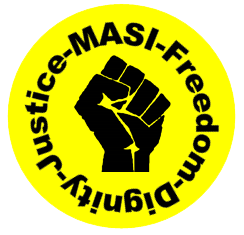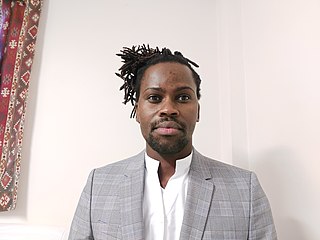
The Republic of Ireland had a population of 5,149,139 at the 2022 census.

Migrant Help is a United Kingdom-based national charity that has been supporting migrants since 1963.
Since 1945, immigration to the United Kingdom, controlled by British immigration law and to an extent by British nationality law, has been significant, in particular from the Republic of Ireland and from the former British Empire, especially India, Bangladesh, Pakistan, the Caribbean, South Africa, Nigeria, Ghana, Kenya, and Hong Kong. Since the accession of the UK to the European Communities in the 1970s and the creation of the EU in the early 1990s, immigrants relocated from member states of the European Union, exercising one of the European Union's Four Freedoms. In 2021, since Brexit came into effect, previous EU citizenship's right to newly move to and reside in the UK on a permanent basis does not apply anymore. A smaller number have come as asylum seekers seeking protection as refugees under the United Nations 1951 Refugee Convention.
Immigration detention is the policy of holding individuals suspected of visa violations, illegal entry or unauthorized arrival, as well as those subject to deportation and removal until a decision is made by immigration authorities to grant a visa and release them into the community, or to repatriate them to their country of departure. Mandatory detention refers to the practice of compulsorily detaining or imprisoning people seeking political asylum, or who are considered to be illegal immigrants or unauthorized arrivals into a country. Some countries have set a maximum period of detention, while others permit indefinite detention.

Canadian immigration and refugee law concerns the area of law related to the admission of foreign nationals into Canada, their rights and responsibilities once admitted, and the conditions of their removal. The primary law on these matters is in the Immigration and Refugee Protection Act, whose goals include economic growth, family reunification, and compliance with humanitarian treaties.
Refugees in Hong Kong have formed historic waves arriving in the city due to wars in the region and Hong Kong's historical role as a trading and transit entrepôt. More recently those seeking asylum or protection based on torture claims are a fast growing part of the city's population, increasing since 2004 due to changes in the legal system for considering asylum and torture claims mandated by local courts.
The Australian government has a policy and practice of detaining in immigration detention facilities non-citizens not holding a valid visa, suspected of visa violations, illegal entry or unauthorised arrival, and those subject to deportation and removal in immigration detention until a decision is made by the immigration authorities to grant a visa and release them into the community, or to repatriate them to their country of origin/passport. Persons in immigration detention may at any time opt to voluntarily leave Australia for their country of origin, or they may be deported or given a bridging or temporary visa. In 1992, Australia adopted a mandatory detention policy obliging the government to detain all persons entering or being in the country without a valid visa, while their claim to remain in Australia is processed and security and health checks undertaken. Also, at the same time, the law was changed to permit indefinite detention, from the previous limit of 273 days. The policy was instituted by the Keating government in 1992, and has been varied by the subsequent Howard, Rudd, Gillard, Abbott, Turnbull, Morrison and Albanese Governments. The policy is regarded as controversial and has been criticised by a number of organisations. The High Court of Australia has confirmed, by majority, the constitutionality of indefinite mandatory detention of non-citizens.
The United Nations High Commissioner for Refugees Representation in Cyprus is an office of the United Nations High Commissioner for Refugees (UNHCR) opened in August 1974 upon the request of the Government of Cyprus and the Secretary-General of the United Nations. UNHCR Representation in Cyprus was designated as Coordinator of the United Nations Humanitarian Assistance for Cyprus. UNHCR was also responsible upon the request of the Cyprus Government to examine applications for refugee status.
The Integration Centre is a Non Government Organisation (NGO) based in Ireland which is committed to the integration and inclusion of people from immigrant backgrounds in Irish society. The Centre was opened in July 2009 with the merger of two NGO’s; The Refugee Information Service and Integrating Ireland, The Immigrant Network.
LGBT migration is the movement of lesbian, gay, bisexual and transgender(LGBT) people around the world and domestically, often to escape discrimination or ill treatment due to their sexuality. Globally, many LGBT people attempt to leave discriminatory regions in search of more tolerant ones.

Direct provision is a system of asylum seeker accommodation used in the Republic of Ireland. The system has been criticised by human rights organisations as illegal, inhuman and degrading. The system, operated by the International Protection Accommodation Services (IPAS) of the Department of Children, Equality, Disability, Integration and Youth, provides international protection applicants with accommodation and a small allowance. International protection applicants in direct provision are usually entitled to state-funded medical care, and children have full mainstream access to the education system.

Voluntary return or voluntary repatriation is usually the return of an illegal immigrant or over-stayer, a rejected asylum seeker, a refugee or displaced person, or an unaccompanied minor; sometimes it is the emigration of a second-generation immigrant who makes an autonomous decision to return to their ethnic homeland when they are unable or unwilling to remain in the host country.
Launched in 2014, Justice Centre Hong Kong is an independent, non-profit human rights organisation that focuses on the protection of refugees and asylum seekers in Hong Kong. Hong Kong has long been a hub of migration and refuge due to wars in the region and Hong Kong’s historical role as a trading and transit entrepôt. There were estimated to be 14,000 refugees in the territory in 2017, and these refugees are in need of extensive legal assistance as the 0.8 substantiation rate is extremely low compared to rates of 25-62% per cent in other developed jurisdictions. Before early 2014 the organisation was known as the Hong Kong Refugee Advice Centre (HKRAC), which in 2007 had grown out of the Refugee Advice Unit from another local organisation working with refugees, Christian Action. And spun off by human rights lawyers Jennifer Stone and Raquel Amador, who were the first Directors. In 2012 Aleta Miller became Executive Director, helping HKRAC win the Clifford Chance Foundation Access to Justice Award in 2012, and relaunching the organisation as Justice Centre Hong Kong in 2014. From 2015 the Executive Director was Piya Muqit, who was previously head of policy and advocacy at UNICEF UK. In November 2020 Melanie McLaren was appointed Executive Director.

The Movement of Asylum Seekers in Ireland (MASI) is an Irish advocacy group for those seeking international protection in Ireland, with the goals of ending direct provision and deportation.

The Immigrant Council of Ireland (ICI) is a non-governmental organisation and independent law centre based in Ireland which advises migrants on their rights while advocating for increased migrant protections.

Spirasi is the Irish national independent centre for the rehabilitation of victims of torture.

Doras is an Irish independent, non-governmental organisation advocating for the rights of migrants in Ireland based in Limerick.

Bulelani Mfaco is a South African former asylum seeker and activist in Ireland, and spokesperson for the Movement of Asylum Seekers in Ireland.
Nasc is an Irish independent, non-governmental migrant rights centre in Ireland, based in Cork.

The Rwanda asylum plan is an immigration policy which was first proposed by the British government, whereby people who the United Kingdom identifies as being illegal immigrants or asylum seekers will be relocated to Rwanda for processing, asylum and resettlement. Those who are successful in claiming asylum will remain in Rwanda and they will not be permitted to return to the United Kingdom.










